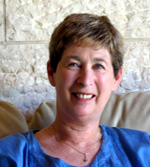|
By Dorothea Shefer-Vanson
 MEVASSERET ZION, Israel—An item in the newspaper I was reading at breakfast almost made me choke on my toast and marmalade. It mentioned a document that had been sent to the President of the Hebrew University in 1945 concerning the possibility of settling some of the Jewish refugees then unable to gain access to Mandate-controlled Palestine in Albania. The idea itself was not so alien to me (it is mentioned in Martin Gilbert’s book, Churchill and the Jews), but what made me catch my breath was the author of the document. This was Leo Elton, described as ‘a Zionist British journalist,’ and known to me as a cousin of my father’s. MEVASSERET ZION, Israel—An item in the newspaper I was reading at breakfast almost made me choke on my toast and marmalade. It mentioned a document that had been sent to the President of the Hebrew University in 1945 concerning the possibility of settling some of the Jewish refugees then unable to gain access to Mandate-controlled Palestine in Albania. The idea itself was not so alien to me (it is mentioned in Martin Gilbert’s book, Churchill and the Jews), but what made me catch my breath was the author of the document. This was Leo Elton, described as ‘a Zionist British journalist,’ and known to me as a cousin of my father’s.
Though Leo Elton died in 1947, when I was only five years old, I still have a dim recollection of him as a kindly and fun-loving uncle. This report was something I had never heard about, however, and his journey to Albania seemed highly unlikely. Nor had I ever heard him described as a journalist. As fate would have it, Uncle Leo’s nephew, my cousin, Martin Elton, now lives in Israel. So a few days later, together with Martin, I visited the Central Archives for the History of the Jewish People on the Hebrew University’s Givat Ram campus to take a closer look at the report, whose number in the archive is P3/2550..
From the handwritten letter accompanying the report we learned that Leo Elton had indeed visited Albania in 1935. He did so at his own initiative, prompted by newspaper reports of Albania’s willingness to accept Jewish immigration and the restrictions imposed upon entry into the Land of Israel by the British Mandatory authorities. As Martin pointed out, Uncle Leo, though no journalist, was a businessman and hence traveled extensively.
Go to the top of next column
|
|
The report is entitled ‘Impressions of a visit to Albania with some observations upon the opportunities open to Jewish settlers in that country.’ Written in impeccable if somewhat flowery English, the report describes in considerable detail the physical, social and economic conditions of Albania, noting “it touches the heart how Albania too withered for so long under the blighting hand of the Turk.” The comparison with the situation in Mandatory Palestine is very clear, and Uncle Leo points out “Although I judge Albania to possess many great natural advantages over Palestine, it has traveled but a very few steps compared with the latter on the road back to vigour and prosperity.”
The contrast between the achievements of the Zionist pioneers in Palestine and the desolation of the towns and primitive level of agriculture in Albania is often stressed. The soil of Albania is described as fertile and its population sparse, with only one million inhabitants. Leo Elton found that though the population was Muslim, it was not warlike or extreme in character. As we know today, only one Albanian Jewish family was deported and killed by the Nazis, despite Mussolini’s occupation of the country. All Albania’s Jews were taken in and protected by their Muslim neighbours. In fact, Albania was the only country occupied by the Axis powers that had more Jews at the end of the war than at the beginning, as Jews from other Balkan countries sought refuge there.
Having prepared his trip with characteristic thoroughness, Uncle Leo obtained a letter of introduction to the Albanian Minister of Economics from the Albanian embassy in London. He describes this meeting at considerable length and recounts their discussion of the economic and business potential inherent in the country.
It makes one wonder what might have happened if Uncle Leo’s vision of Jewish settlement in Albania had been fulfilled.
|
|

